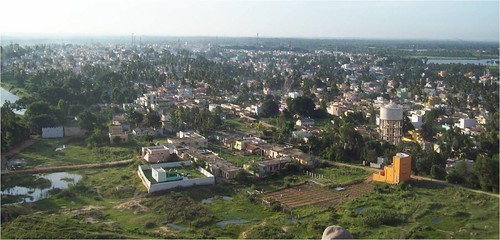Urban Sanitation
Expanding access to improved water sources through watercredit: A report on the stakeholders engagement forum organised by waterorg New Delhi19th February 2013
Posted on 22 Nov, 2014 10:30 AMUday Shankar from water.org welcomed the audience and introduced the issue of access to safe water and sanitation. Gary White, water.org, set the tone of the seminar by explaining his organisation’s vision of ‘getting safe water’ for everyone.
Alternative and sustainable drinking water and sanitation security in flood prone areas of north Bihar: Report on the groundwater seminar organised by Megh Pyne Abhiyan and ACWADAM 2011
Posted on 22 Nov, 2014 10:30 AMThe report is divided into the following sections:
Conference report: The Anil Agarwal Dialogue on Excreta does matter organised by Centre for Science and Environment on 45 March 2013 at New Delhi
Posted on 22 Nov, 2014 10:30 AMA close examination of these two issues shows that the water and sewage challenge is already grave and could get worse. With this as the backdrop, Centre for Science and Environment (CSE), a public interest research and advocacy organisation based in New Delhi, organised a two day conference called the Anil Agarwal Dialogue on “Excreta does matter”. The conference took place at the Jacaranda Hall, India Habitat Centre, Lodhi Road, New Delhi on 4 and 5 March 2013.
The dialogue aimed at furthering the agenda of CSE’s seventh State of India’s Environment report titled Excreta Matters. This report is a comprehensive survey of the situation of water and wastewater management in 71 Indian cities. The study found that most cities lack a basic policy direction on how best to tackle issues of demand, supply and treatment of water, and of management of sewage.
The Dialogue being the first of its kind brought together a wide range of professionals, activists, practitioners, policy makers, academicians, researchers and administrators from the water sector. The event was aimed at drawing attention on the critical issues of how cities will get affordable and sustainable water and waste systems that can supply to all and take back and treat the sewage of all.

How have Indias flagship development programmes fared Budget briefs on the TSC JNNURM and MGNREGS by the Accountability Initiative
Posted on 22 Nov, 2014 10:30 AMGovernment of India’s development programmes are aimed to bring in much required inclusive development and pave a way towards an equitable and socially just society. With this motive the Centre had introduced several programmes in social sectors and allocated a fixed amount for achieving the set goals.
An analysis on the performance of the programmes shows how far the targets have been achieved, the shortcomings and the steps that are to be taken to strengthen the programmes.

An evaluative study on the informal water distribution system in Kaula Bandar slum in Mumbai: A paper in BioMed Central Public Health Journal
Posted on 22 Nov, 2014 10:30 AMAs a result of rapid urbanisation, majority of migrated population is forced to settle in places which are not legally recognised by state authorities. These areas thus lack in basic services like water supply and sewerage. Consequently, the slum dwellers often resort to illegal methods to avail these services.
Toilets in the making: Delhi Urban Art Commission DUAC designs eco friendly and low cost public toilets for Delhi
Posted on 22 Nov, 2014 10:30 AM

Strategies for achieving environmental sustainability in rural development A report by United Nations Development Programme
Posted on 22 Nov, 2014 10:30 AMThis report by the United Nations Development Programme (UNDP) presents strategies for inclusive rural development embodying the principles of environmental sustainability. It recommends measures needed to achieve green, including measuring and tracking, the use incentives and the building of capacities. It also contains a number of case studies showing how green results can be achieved.
Assessing the land use change and its impact on water resources: A study on the Mula and Mutha rivers catchment area in Pune
Posted on 22 Nov, 2014 10:30 AMLand use changes hydrologic system and have potentially large impacts on water resources. An assessment in an area with seasonally limited water availability and which is subject to rapid socio- economic development and population growth will provide an exemplary view on the local impacts of major recent developments in India. In this backdrop this paper analyzes past land use changes between 1989 and 2009 and their impacts on the water balance in the Mula and Mutha Rivers catchment upstream of Pune. The aim of the paper is:
- assess the land use changes between 1989/1990 and 2009/2010
- analyze the impacts of these changes on the long-term water balance components in the Mula and Mutha Rivers catchment upstream of the city of Pune.
Influence of anthropogenic contamination on fluoride concentration in groundwater: A study of Mulbagal town Kolar district Karnataka
Posted on 22 Nov, 2014 10:30 AMGroundwater contamination is a serious, but relatively ignored issue in the country. This contamination occurs in either through geogenic or anthropogenic means. Fluoride contamination is one such example of geogenic contamination that is widely found in the Kolar district of Karnataka. However, the fluoride levels in the town of Mulbagal are lower than those in the surroundings. Earlier, a study was conducted on the impact of pit toilets on the groundwater in the area. The present paper investigates the presence of any link between these two phenomena.





